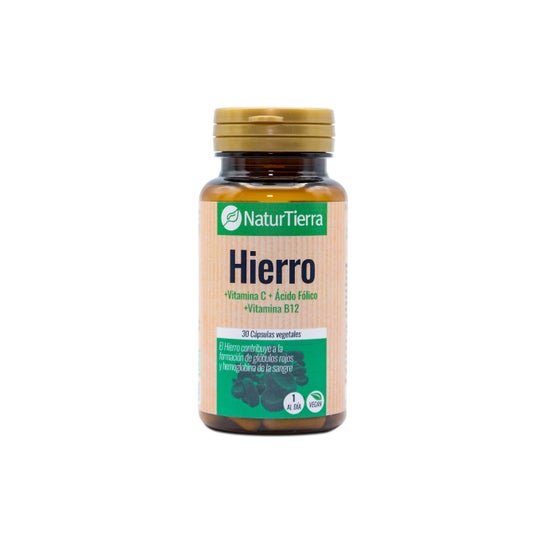The best iron I've tried, does not cause digestive discomfort, vegetable capsules with Vitamin C that improves the absorption of iron and B12, very complete.
Anonymous A.
Food supplement made from iron and vitamins, ideal for contributing to the formation of red blood cells and hemoglobin, and the normal functioning of the immune system. Due to its iron bisglycinate content, it does not cause digestive discomfort. With vitamin C and B12, which help to reduce and combat states of tiredness and fatigue.

